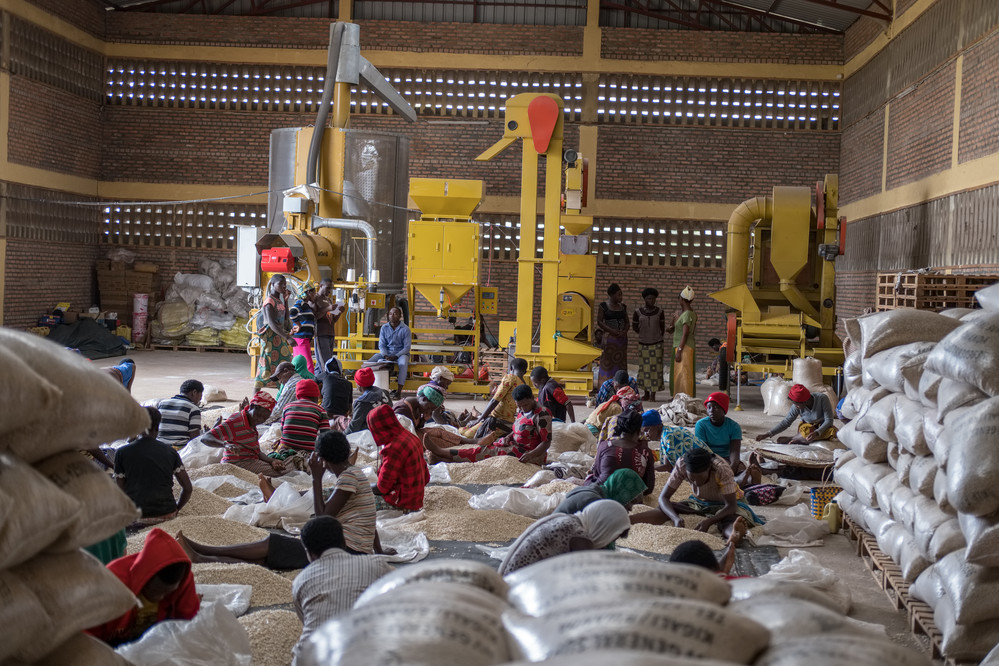In the complex and ever-evolving world of agricultural insurance, cross-country knowledge sharing sessions can play a pivotal role in driving progress, innovation and sustainable development. On 13th July 2023, Ritesh Pandey and myself facilitated such a session as part of our fellowship with the ILO’s Social Finance Programme, bringing together participants from Radiant Insurance, the Rwandan Ministry of Agriculture and Dedicated Agri Services Pvt a subsidiary of K.M. Dastur to discuss agricultural insurance development in Rwanda and learn from experiences in other countries.
Learning from India
The workshop drew on India’s successes with national agricultural insurance to explore the potential impact of such schemes on Rwandan farmers. India’s agri-insurance market has made significant advancements over the years and is considered one of the most extensive and dynamic agricultural insurance markets in the world. The session highlighted how the provision of subsidy, diversified distribution channels, centralized and coordinated Information, Education and Communication efforts, and PPP mechanisms across the value chain has helped Indian crop insurance scheme develop into one of the largest crop insurance schemes across the globe.
Impact of the Rwanda National Agriculture Insurance Scheme
A highlight of the workshop was the presentation by the representative from the Ministry of Agriculture, unveiling the potential of Rwanda’s National Agriculture Insurance Scheme (NAIS). The government’s commitment to consumer education and protection, along with subsidies, showed a sincere dedication to protecting the farmers’ interests.
The NAIS has already shown impressive results, positively impacting the lives of Rwandan farmers with some of the notable impacts being:
- Protection of vulnerable farmers and livestock keepers: Over 400,000 farmers and 28,000 livestock keepers are now benefitting from insurance. Additionally, more than 60 small and medium-sized enterprises such as cooperatives and dairies are also covered by the scheme.
- Unlocking credit opportunities: The agricultural insurance provided has served as collateral, enabling farmers access to over US$2 million in loans. This newfound financial support has empowered them to invest more in their farms and utilize improved inputs that can enhance productivity.
- Supporting farmers in times of loss: The scheme has disbursed over US$2 million to farmers as compensation, providing crucial financial support during times of agricultural losses and uncertainty.
Challenges and opportunities in Rwanda’s NAIS
As with any endeavor, challenges are inevitable. During the workshop, participants identified specific hurdles faced by the (NAIS) that need addressing to maximize its impact:
- Lack of awareness and farmer trust: Like most insurance products, one significant hurdle is the limited trust farmers have in insurance companies. To overcome this, the workshop emphasized the importance of strengthened efforts from the government and insurers to raise awareness. One proposed solution is allocating a percentage of premiums for targeted awareness and capacity-building initiatives taking inspiration from India’s successful approach where 0.5% of the gross premium goes towards Information, Education and Communication efforts. India has demonstrated tremendous efforts in this regard with initiatives like the crop insurance week and regular capacity building of stakeholders setting a valuable example.
- Coordination challenges and lack of centralized system: As this is a public-private partnership, there are significant coordination challenges and the lack of centralized scheme administration systems. Unlike the already existing central administrative system for livestock insurance, the scheme currently lacks a centralized system for administering crop insurance. To tackle this challenge, participants deliberated on the possibility of implementing a centralized IT-based system akin to India’s national crop insurance portal, streamlining administration and operations.
- Distribution challenges: Inspired by India’s experience, options of engaging grassroot-level organizations as distribution channels were discussed. However, participants found enhancing existing distribution channels, such as agents, company branches, cooperatives, and microfinance institutions to be more feasible. Additionally, embracing technology, particularly in crop cut experiments and tackling operational challenges in livestock insurance, like potential fraud cases and high administrative costs, can effectively address high claim ratios.
Nurturing growth and collaboration
The collaboration between the ILO’s Social Finance Programme and Radiant Insurance reflects a shared commitment to enhancing the resilience of Rwandan farmers and advancing agricultural insurance in the region. By borrowing and adapting valuable lessons from more advanced agri-insurance markets like India, we envision an inclusive and robust insurance ecosystem for Rwanda’s agricultural sector.
This article was originally published by: ILO Social Finance

